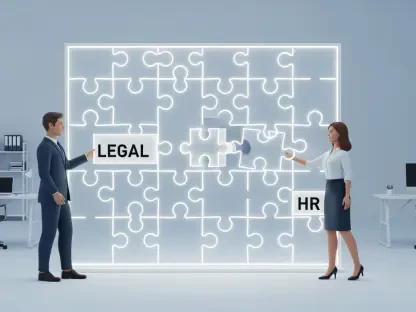In a striking development that has captured global attention, Donald Trump has threatened to file a massive $1 billion defamation lawsuit against the British Broadcasting Corporation (BBC) over a Panorama documentary aired in 2024, just before the November 2024 U.S. presidential election. The program allegedly manipulated footage of Trump’s January 6, 2021, speech to imply he incited the Capitol riot following his loss to Joe Biden. By splicing unrelated statements delivered minutes apart, the edited clip has fueled accusations of malice from Trump’s legal team, who argue it caused severe reputational damage at a critical political moment. This high-stakes legal threat, expected to be pursued in Florida, raises pressing questions about its viability under U.S. law, where free speech protections often overshadow claims of defamation. As the case unfolds, it also highlights deeper tensions between media freedom and individual rights, setting the stage for a complex battle that could redefine legal boundaries for public figures and international broadcasters alike.
Legal Challenges in the U.S. Court System
Navigating the High Bar of Defamation Law
The foundation of Trump’s potential lawsuit rests on proving defamation, but the path in U.S. courts is fraught with obstacles due to the robust protections afforded by the First Amendment. For public figures like Trump, the legal standard demands evidence not just of falsehood in the content, but also of “reckless disregard” for the truth—a threshold often equated with malicious intent. Legal scholars have consistently pointed out that meeting this criterion is exceptionally challenging, particularly without direct insight into the BBC editors’ motivations. The absence of tangible proof, such as internal communications revealing deliberate misrepresentation, could render the case nearly impossible to win. Moreover, U.S. courts have historically leaned heavily toward safeguarding free expression, especially in matters involving political discourse, which further complicates the prospects of a successful claim against a media entity like the BBC.
Beyond the issue of intent, the broader implications of this legal standard weigh heavily on the lawsuit’s potential outcome. Even if the edited footage is deemed misleading, establishing that the BBC acted with negligence or spite remains a steep climb. Courts often require concrete evidence over speculation, and without access to editorial decision-making processes, Trump’s team faces a significant evidentiary gap. Additionally, the judiciary’s tendency to prioritize press freedom in cases involving public officials means that any perceived harm must be extraordinarily well-documented to tip the scales. This stringent framework underscores why defamation suits by high-profile individuals frequently falter in the U.S., casting doubt on whether this particular claim can gain traction in a Florida courtroom.
Demonstrating Tangible Reputational Damage
Another formidable challenge lies in quantifying the harm allegedly inflicted on Trump’s reputation and finances by the documentary. His legal team asserts that the broadcast caused substantial damage, but substantiating such claims for someone of his prominence is notoriously difficult without clear, measurable losses—such as a specific contract or opportunity that was directly revoked due to the aired content. The limited accessibility of BBC programming in the U.S., particularly through platforms like iPlayer, adds another layer of complexity. With a relatively small American audience, especially in Florida where the suit is likely to be filed, arguments about widespread reputational impact may struggle to hold weight. This gap between perceived and provable harm could significantly undermine the case, even if the editing itself is viewed as deceptive.
Further complicating matters is the nature of reputational damage for a figure as polarizing as Trump. Public opinion about him is often deeply divided, making it hard to isolate the documentary’s effect from pre-existing sentiments or other concurrent controversies. Legal experts note that courts typically demand evidence of direct causation between the content and the harm, a link that becomes murky when dealing with a former president whose image is shaped by countless factors. The timing of the broadcast, close to the 2024 election, might suggest intent to influence voters, yet proving this translated into quantifiable damage remains elusive. This aspect of the lawsuit highlights the intricate balance between legal theory and practical application in defamation cases involving global figures.
Jurisdictional Dilemmas and International Law
Contrasting U.S. and UK Legal Frameworks
A critical dimension of this lawsuit involves the stark differences between defamation laws in the U.S. and the UK, which could shape its trajectory depending on where it is ultimately filed. In the U.S., the emphasis on free speech under the First Amendment creates a high threshold for plaintiffs, requiring proof of malice alongside falsehood. By contrast, UK law adopts a more claimant-friendly approach, focusing primarily on whether the content is false or misleading, without the stringent need to demonstrate intent. However, even if pursued in the UK, the damages awarded would pale in comparison to the $1 billion sought, as historical payouts there have rarely exceeded a fraction of that amount. Additionally, European courts, guided by principles from bodies like the European Court of Human Rights, often view oversized claims skeptically to avoid chilling press freedom, further limiting potential recovery.
The jurisdictional divide also brings strategic considerations into play for Trump’s legal team. While a U.S. filing aligns with his domestic audience and political base, it faces the tougher legal scrutiny of American courts. A UK filing, though potentially more favorable in terms of proving defamation, risks being perceived as an attempt to circumvent U.S. protections for media, and the capped damages could render the effort financially unviable given the scale of the claim. This contrast not only affects the likelihood of success but also highlights broader tensions between national legal systems in an era of global media. The decision on where to file will likely hinge on balancing the odds of winning against the practical outcomes, a calculation that underscores the complexity of cross-border defamation disputes.
Strategic Challenges of Cross-Border Litigation
Filing a lawsuit across international boundaries introduces a host of practical and procedural challenges that could impact the case’s progression. Pursuing the claim in the U.S. might resonate more with Trump’s supporters and align with his narrative of media bias, but it subjects the case to stringent American legal tests that heavily favor defendants in defamation matters. Conversely, initiating proceedings in the UK could offer a marginally better chance of establishing liability due to less burdensome requirements, yet enforcing a judgment or securing significant damages remains uncertain. The logistical hurdles of coordinating evidence, witnesses, and legal representation across two jurisdictions add further strain, potentially prolonging the process and escalating costs without a guaranteed payoff.
Moreover, the international nature of the dispute raises questions about enforceability and precedent. Even if a UK court were to rule in Trump’s favor, collecting damages from a publicly funded entity like the BBC could face political and diplomatic resistance. In the U.S., a loss might reinforce the narrative of media overreach among Trump’s base, but a win for the BBC could embolden other outlets to push boundaries in political reporting. The cross-border dynamic also invites scrutiny from legal observers about the harmonization of defamation standards in an increasingly interconnected media landscape. These practical considerations, combined with the inherent risks of transnational litigation, suggest that the path forward for this lawsuit is anything but straightforward.
Contextual and Strategic Factors
Election Timing and Political Ramifications
The timing of the BBC documentary’s release, just before the 2024 U.S. presidential election, adds a potent political dimension to Trump’s defamation claim. His legal team argues that airing the edited footage at such a critical juncture was a deliberate attempt to sway public opinion and undermine his electoral prospects, thereby amplifying the perceived harm. This argument could resonate in framing the broadcast as a calculated move, potentially strengthening the case for intentional damage. However, U.S. courts often place significant weight on protecting political speech, even when it is contentious or inflammatory, under the First Amendment. This judicial tendency to prioritize public discourse over personal grievances introduces a counterbalance that could weaken the lawsuit’s impact, regardless of the timing’s implications.
Delving deeper into the political context, the documentary’s release also intersects with broader debates about media influence during election cycles. While the proximity to voting day might suggest an agenda, it also underscores the public’s right to access information about candidates, a principle fiercely guarded by American legal precedent. Courts have historically been reluctant to penalize media outlets for content tied to political events unless clear malice is proven, a hurdle that remains central to this case. The tension between safeguarding individual reputation and ensuring robust political dialogue is particularly pronounced here, reflecting a recurring challenge in defamation law. How this balance is struck could set a significant marker for future disputes involving media coverage of electoral politics.
BBC’s Stance and Internal Repercussions
The BBC’s response to the controversy surrounding the documentary provides another lens through which to view the lawsuit’s potential trajectory. Following the broadcast, the organization issued a public apology for what it termed an “error of judgment” in the editing process, a move that could be interpreted as an admission of fault and might encourage settlement discussions. Additionally, high-level resignations within the BBC in the wake of the incident suggest internal acknowledgment of mishandling, potentially weakening its position in a legal battle. This internal fallout contrasts sharply with the varied outcomes of Trump’s past media disputes, where some outlets have opted to settle while others have mounted vigorous defenses, indicating that the BBC’s next steps remain unpredictable.
Examining the broader implications of the BBC’s actions, the apology and resignations could play into Trump’s narrative of media bias and irresponsibility, bolstering his public case even if the legal one falters. However, these developments also place pressure on the broadcaster to address accountability transparently, which might lead to a more conciliatory approach to avoid prolonged litigation. Unlike domestic U.S. media outlets that have sometimes resisted Trump’s claims, the BBC’s status as a publicly funded international entity adds unique constraints, including potential political ramifications in the UK. Whether this situation prompts a compromise or a staunch defense will likely influence how similar cases are handled by global media organizations in the future, marking this dispute as a pivotal moment for press accountability.
Trump’s History with Media Litigation
Recurring Strategy of Legal Confrontation
Trump’s threatened lawsuit against the BBC fits into a well-established pattern of leveraging litigation to challenge perceived media bias, a tactic that has defined much of his public life. Over the years, several U.S. media outlets, including CBS and ABC, have reached settlements with him over content deemed defamatory, reflecting a degree of success in using legal pressure to secure concessions. These outcomes suggest a calculated strategy of holding media accountable through the courts, often amplified by public rhetoric about “fake news.” The current case against the BBC, while international in scope, mirrors this approach, positioning the lawsuit as not just a personal grievance but part of a broader campaign to reshape narratives around his image and political legacy.
This recurring legal strategy also reveals the dual nature of Trump’s media battles, where outcomes are far from uniform. While settlements with some organizations indicate a willingness to negotiate, other outlets, such as The New York Times, have staunchly resisted similar claims, refusing to yield under legal or public pressure. This variability underscores the uncertainty surrounding the BBC’s response, as it grapples with both the specifics of the documentary controversy and the precedent set by Trump’s prior victories and defeats. The pattern of litigation, therefore, serves as a critical backdrop, illustrating that while legal action is a familiar tool for Trump, its success hinges on the unique circumstances of each case, including the defendant’s resolve and resources.
Implications of Past Cases on Current Dispute
Reflecting on the precedents from Trump’s earlier media lawsuits offers valuable insight into the possible outcomes of the BBC case. Settlements in past disputes, often involving significant financial payouts, might embolden Trump’s team to push for a similar resolution, especially given the BBC’s recent apology, which could be seen as a sign of vulnerability. These prior agreements also signal to media entities that conceding to legal demands can sometimes be a pragmatic way to avoid protracted battles, a factor that might influence the BBC’s decision-making. If a settlement is reached, it could reinforce the effectiveness of litigation as a deterrent against unfavorable coverage, particularly for international broadcasters less familiar with U.S. legal norms.
On the other hand, cases where media outlets have successfully defended against Trump’s claims highlight the potential for resistance to shape the current dispute. A strong defense by the BBC, if mounted, could establish a new benchmark for how global media navigate accusations of defamation by prominent figures, especially in politically charged contexts. Such an outcome might deter future lawsuits by demonstrating the resilience of press freedom under U.S. law, even against high-profile plaintiffs. The interplay between past precedents and the unique elements of this case—such as jurisdictional issues and the BBC’s public funding—suggests that the resolution will carry lasting implications. As this legal saga unfolds, it becomes a testament to the enduring conflict between media accountability and the right to free expression.
Weighing the Odds of Legal Success
Looking back, the legal journey of Trump’s $1 billion defamation claim against the BBC reveals a landscape riddled with formidable challenges. The stringent demands of U.S. defamation law, coupled with difficulties in proving tangible harm and navigating jurisdictional nuances, paint a picture of a case that struggles to gain footing. Despite the contentious timing of the documentary near the 2024 election, the balance of free speech protections often tips against personal claims in American courts. Moving forward, the focus should shift to monitoring how international media adapt to such high-stakes disputes, potentially revising editorial practices to mitigate legal risks. Additionally, lawmakers and legal scholars might consider this case a catalyst for reevaluating the intersection of global media and national defamation laws, exploring frameworks that better harmonize press freedom with accountability. Ultimately, the resolution of this dispute offers a chance to refine the delicate equilibrium between protecting reputations and upholding the public’s right to information.









